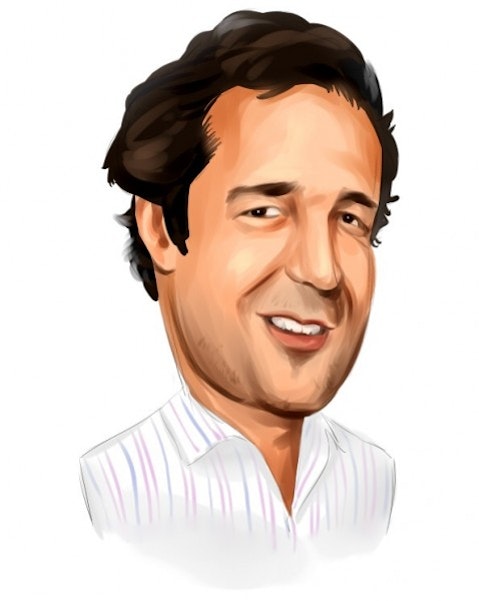UnitedHealth Group Inc. (NYSE:UNH) is primarily a large health insurer (other divisions of the company sell software for health care providers and pharmacy benefit management services) with a market capitalization of over $50 billion. In July, UnitedHealth Group Inc. announced its results for the second quarter of the 2012 fiscal year. Compared to the same quarter a year ago, UnitedHealth increased its subscriber base by 1.7 million customers, which in turn led to an 8% increase in revenue. This revenue growth was led by the Medicare and Medicaid related segments of the company’s business. Margins were roughly similar with the result that net income increased 9% compared to Q2 2011. Due to these good results, UnitedHealth Group Inc. (NYSE:UNH) also raised its guidance for FY 2012 to earnings per share of $4.90 to $5.00. The stock currently trades at about $52. Finally, the quarterly report announced an increase in the company’s dividend- at current prices, the new dividend yield will be about 1.6%- and an increase in authorization to repurchase shares. Despite beating earnings estimates for the fourth quarter in a row, the announcement did little to stop the decline in UnitedHealth’s stock price, and the stock is now down about 12% since the end of June and about flat year to date against rising indexes.
UnitedHealth Group Inc. made our list of the ten most popular health care stocks among hedge funds for the first quarter of the year. Leading the group of hedge fund investors, according to 13F filings, was Boykin Curry’s Eagle Capital Management. Eagle Capital reported owning 8.5 million shares; the fund had owned 6.6 million shares a year earlier and had been slowly increasing its position (find more stock picks from Eagle Capital Management). The other two hedge funds reporting positions worth over $200 million were PAR Capital Management- whose 4.8 million shares represented a slight decrease from the beginning of the year- and Harvard Management-seeded Highfields Capital Management, which also decreased its stake in UnitedHealth Group Inc. but still owned 3.4 million shares at the end of March (see more stocks in the portfolios of PAR Capital Management and Highfields Capital Management).
The good earnings report helps give UnitedHealth a trailing price-to-earnings ratio of 11, and given its earnings growth and its moderate dividend yield it deserves consideration as a value stock pick. Its forward P/E multiple based on sell-side estimates drops to 9, and as mentioned the company has a history of beating whatever Wall Street’s estimates are at the time of the report. While there are many industry- and sector-related factors, including increased federal involvement in the insurance market, that may put much of the company’s business at risk, sell-siders know of the existence of these risks. It should also be noted that on a statistical basis UnitedHealth’s stock has considerable protection from market movements, with a beta of 0.4. Not only can the company be a value play, but investors do not have to worry much about macro weakness in the U.S. (and of course there is essentially no exposure to Europe or the rest of the world except through their effect on the U.S. economy).
Large-cap competitors in the insurance market include Aetna Inc. (NYSE:AET), Humana Inc. (NYSE:HUM), and WellPoint Inc (NYSE:WLP). All three of these stocks pay dividend yields a bit higher than UnitedHealth’s, in the 1.7% to 2.1% range, and all three carry considerably lower multiples than the larger company. Humana Inc. (NYSE:HUM) and WellPoint Inc (NYSE:WLP) have trailing P/E ratios of 8, while Aetna Inc. (NYSE:AET)’s is 7. This is probably partly due to UnitedHealth’s larger size, but it should also be noted that all three peers saw a decrease in earnings in their last reported quarter compared to the same quarter in the previous year. Their forward multiples are slightly lower than their trailing multiples, implying that Wall Street analysts expect lower growth from these companies. UnitedHealth Group Inc. (NYSE:UNH) thus offers investors a slightly weaker value case than these comparable companies but may be a better bet to at least preserve, if not grow, its business. However, if sell-side evaluations that the regulatory risks facing the industry are limited, an investor could certainly look to buy any of these insurers.
